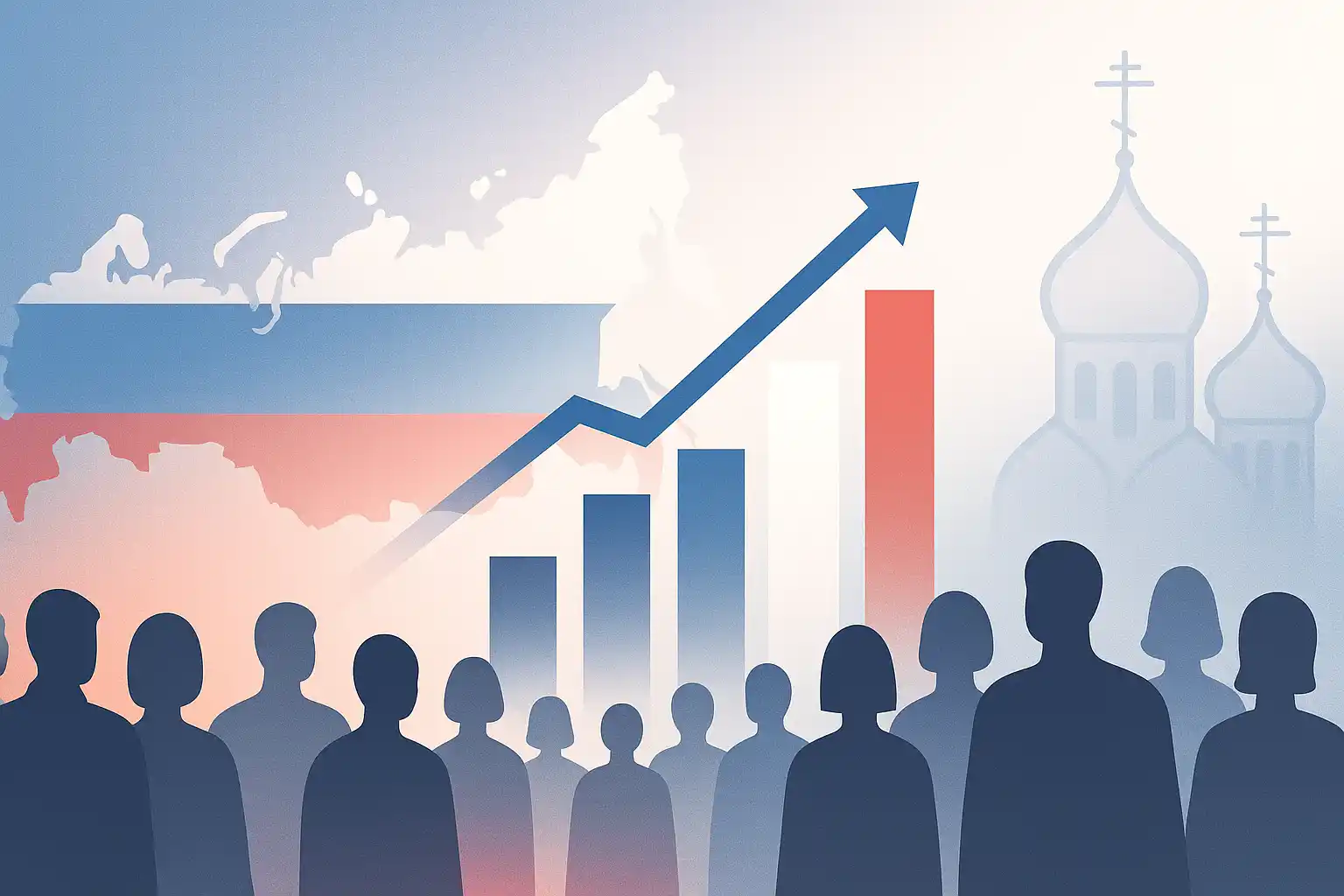Growing conviction about Russia’s special status—and the need to support it unconditionally—is taking hold across society. According to the latest Levada Center poll, feelings of national pride and identity have risen markedly in recent years.
Who Counts as “Russian”: Feeling, Papers, and Faith
Ninety-five percent of respondents said the most important criterion for being considered Russian is to feel oneself to be Russian. Most also consider Russian citizenship (89%), respect for the political system and laws (91%), as well as being born in Russia (78%) and having Russian origins (77%), to be important. At the same time, 61% believe that a “true Russian” should be Orthodox.
Fifty-four percent of those surveyed are convinced that one can “become Russian” by choice, while 36% believe it is possible only by birth. Experts note that the latter group is generally skeptical about expanding pathways to citizenship for migrants from Central Asia and other newcomers.
Comparison with other countries offers another telling indicator: 76% agree that Russia is better than most states. For comparison, only 36% said the same in 1996, 44% in 2003, 49% in 2012, and 64% in 2014.
From Pride to Loyalty: Unconditional Backing and Its Consequences
Attitudes toward the state in the face of possible mistakes are even more revealing: 73% say citizens should support their country even when it is in the wrong. In 2012, that figure stood at 54%; in 2014, 49%. Today, only 20% say they feel ashamed of what is happening in Russia. By contrast, that share reached 80% in both 1996 and 2003, 51% in 2012, and 20% in 2014.
A source involved in regional sociological research describes this as a fundamental shift in public sentiment. Its foundations were laid in 2014, during the “reunification with Crimea,” and have since been reinforced by propaganda. “People are building their identity on love for Russia,” the source notes. “But the flip side is a worsening attitude toward emigrants and ‘relocants’ (those who have left the country). If propaganda gives this topic focused attention, negative attitudes in society will intensify.”
Experts emphasize that patriotism in its current configuration is defined not only as love of the Motherland but also as loyalty to the political regime. The strengthening of this patriotic paradigm is unfolding under censorship constraints and serves above all to bolster support for the incumbent authorities. Sociologists see the most telling trend in the growing number of citizens convinced of the need for unconditional support of the country: a view of Russia as a historically “chosen” great power paired with a perception that the current course admits no alternative. Under these conditions, society steadily absorbs the viewpoint broadcast by the authorities and is ready to extend it to an ever wider range of issues.


















